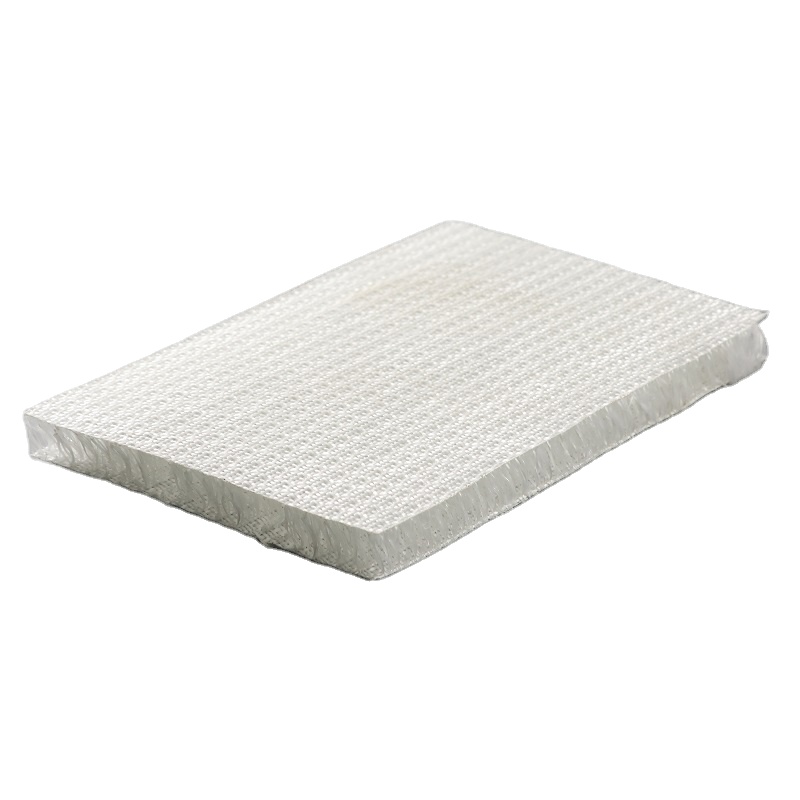
As the aerospace and defense industries continue to evolve, the demand for materials that offer superior performance under extreme conditions has never been higher. One such material that has gained significant attention is 3D fiberglass fabric. This innovative material stands out for its unique three-dimensional structure, offering unparalleled strength, durability, and lightweight properties. In this exploration, we delve into how 3D fiberglass fabric is revolutionizing radome applications, providing enhanced protection and performance for a wide range of systems.
Understanding Radomes and Their Requirements
Radomes, the protective enclosures that cover radar and antenna systems, play a crucial role in safeguarding sensitive equipment from environmental hazards while ensuring optimal operational efficiency. The selection of materials for radome construction requires a delicate balance between durability, weight, and electromagnetic transparency. This is where 3D fiberglass fabric emerges as an ideal solution, offering an exceptional combination of these attributes.
The Advantages of 3D Fiberglass Fabric in Radome Construction
When it comes to constructing radomes, 3D fiberglass fabric offers several compelling advantages. Its three-dimensional structure not only enhances the mechanical properties of the resulting composite but also contributes to lighter and stronger radome designs. This section explores the key benefits of incorporating 3D fiberglass fabric into radome applications, from improved structural integrity to enhanced electromagnetic performance.
Superior Strength and Durability
The inherent strength of 3D fiberglass fabric, stemming from its multi-layered construction, provides radomes with the ability to withstand harsh environmental conditions, including high winds, heavy rain, and UV exposure. This durability ensures the long-term protection of sensitive equipment, reducing maintenance needs and operational disruptions.
Weight is a critical factor in many applications, especially in aerospace and defense. The lightweight nature of 3D fiberglass fabric allows for the construction of radomes that do not significantly add to the overall weight of the system. This can lead to improved fuel efficiency in airborne applications and easier handling and installation across the board.
An essential requirement for any radome material is its ability to allow electromagnetic signals to pass through with minimal interference. The composition of 3D fiberglass fabric makes it inherently compatible with this requirement, ensuring that radar and antenna systems can operate at their highest efficiency without signal attenuation caused by the radome material itself.
Innovative Applications of 3D Fiberglass Fabric in Radomes
The versatility and superior properties of 3D fiberglass fabric have opened up new possibilities in radome design and application. From aerospace to maritime environments, this material is being utilized to create more resilient and efficient radomes. This section highlights some of the innovative ways in which 3D fiberglass fabric is being applied in radome construction, showcasing its potential to transform this critical field.
The Expanding Role of 3D Fiberglass Fabric in Advanced Materials
As technology advances, the role of 3D fiberglass fabric in the development of advanced materials is expected to grow. Its unique properties make it an attractive option not only for radome applications but also for a wide range of industries seeking lightweight, durable, and high-performance materials. The future looks promising for 3D fiberglass fabric as research and development efforts continue to unlock its full potential.
In conclusion, the adoption of 3D fiberglass fabric in radome applications represents a significant leap forward in material science. Its exceptional strength, lightweight characteristics, and electromagnetic compatibility make it an ideal choice for protecting sensitive radar and antenna systems. As we continue to push the boundaries of what's possible, 3D fiberglass fabric stands out as a key material that will shape the future of aerospace, defense, and beyond.















